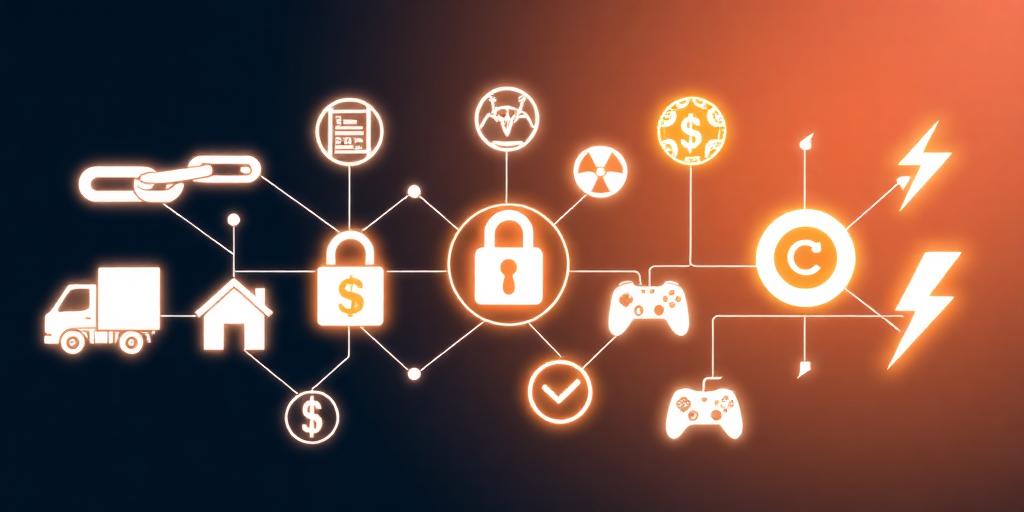The advent of blockchain technology has ushered in a new era of digital transformation, offering unparalleled levels of security, transparency, and decentralization across a multitude of sectors. Beyond its initial association with cryptocurrencies, the distributed ledger technology presents a robust framework for innovating various processes and establishing trust in digital interactions. Understanding the full scope of blockchain's potential requires an exploration of its diverse applications. This analysis delves into the top 10 use cases for blockchain technology, highlighting its transformative impact on industries worldwide.
1. Digital Currencies and Payments
Perhaps the most recognized application, blockchain underpins cryptocurrencies like Bitcoin and Ethereum. It enables secure, peer-to-peer transactions without the need for intermediaries such as banks. This use case extends to cross-border payments, offering faster, cheaper, and more transparent alternatives to traditional remittance services. Stablecoins, which peg their value to fiat currencies, also leverage blockchain to provide stability and efficiency in digital transactions.
2. Supply Chain Management
Blockchain offers an immutable and transparent record of a product's journey from origin to consumer. Companies can track goods in real-time, verify authenticity, and reduce fraud. This enhances traceability, allowing stakeholders to pinpoint inefficiencies, verify ethical sourcing, and ensure product integrity. This is a powerful real-world blockchain application for ensuring accountability.
3. Digital Identity and Data Management
In an increasingly digital world, managing personal identity and data securely is paramount. Blockchain provides a framework for self-sovereign identity, giving individuals control over their personal information. Users can selectively share verifiable credentials without exposing their entire digital footprint, mitigating risks of identity theft and enhancing data privacy.
4. Healthcare and Medical Records
The secure sharing and management of patient data represent a significant challenge in healthcare. Blockchain can create a secure, immutable ledger for medical records, allowing authorized parties to access information while maintaining patient privacy and consent. This improves data interoperability, drug traceability, and streamlines clinical trials.
5. Real Estate and Asset Tokenization
Blockchain facilitates the tokenization of tangible and intangible assets, including real estate, art, and intellectual property. This process converts asset rights into digital tokens on a blockchain, enabling fractional ownership, increased liquidity, and more efficient transfer of ownership. This significantly reduces the complexities and intermediaries often associated with traditional asset management.
6. Intellectual Property and Copyright
Creators can use blockchain to establish irrefutable proof of ownership for their intellectual property. The timestamped and immutable nature of blockchain records provides a clear audit trail for creative works, simplifying copyright registration, tracking usage, and ensuring fair royalty distribution. This protects artists, musicians, and innovators from unauthorized use.
7. Voting Systems
Enhancing the integrity and transparency of electoral processes is a compelling application of blockchain. By recording votes on a distributed ledger, systems can ensure immutability, prevent tampering, and offer verifiable results. This potential future of blockchain technology could restore public trust in democratic systems.
8. Gaming and the Metaverse
Blockchain empowers players with true ownership of in-game assets through Non-Fungible Tokens (NFTs). These digital assets can be traded, sold, or used across different games and virtual worlds within the metaverse. This fosters new economic models, such as play-to-earn, and grants players unprecedented control over their digital possessions.
9. Decentralized Finance (DeFi)
DeFi leverages blockchain to create an open, permissionless, and transparent financial ecosystem. It offers services like lending, borrowing, trading, and insurance without traditional financial intermediaries. By removing central authorities, DeFi aims to increase accessibility, reduce costs, and innovate financial products, presenting robust enterprise blockchain solutions.
10. Energy Management and Grids
Blockchain can optimize energy distribution and consumption through peer-to-peer energy trading. Prosumers (producers and consumers of energy) can directly buy and sell surplus energy, promoting decentralized grids and renewable energy adoption. It can also be used for tracking carbon credits and ensuring transparent energy provenance.
In conclusion, the transformative potential of blockchain technology extends far beyond cryptocurrencies. Its core principles of decentralization, immutability, and transparency are driving innovation across a diverse array of sectors, from finance and supply chains to healthcare and digital identity. As the technology continues to mature, we can anticipate an even broader adoption of these and emerging blockchain use cases, fundamentally reshaping how we interact with digital systems and manage trust in the 21st century.









